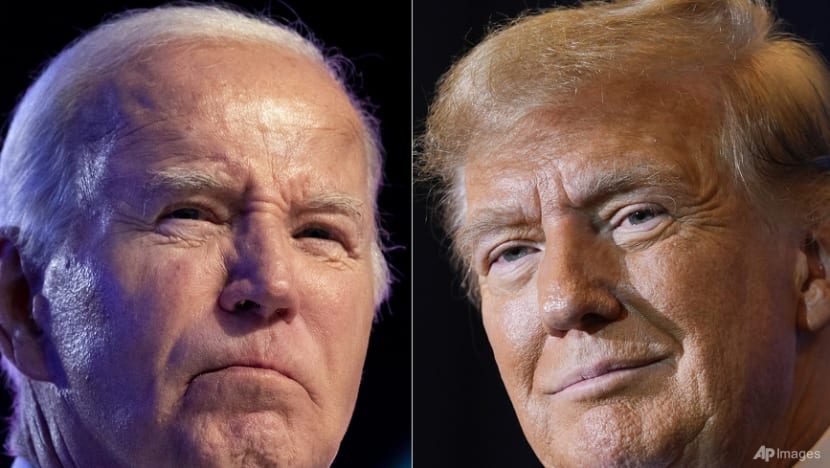On Tuesday night, after the primaries in Georgia, Mississippi, Washington, and the Northern Mariana Islands, Mr. Biden surpassed 1,968 nomination votes to become the Democratic Party's candidate for President of the United States.
Hours later, Mr. Trump also won the 1,215 votes needed to become the Republican Party's candidate, after 4 states held primary elections, including Georgia, Hawaii, Mississippi and Washington state.

US President Joe Biden and former President Donald Trump. Photo: AP
After becoming the Democratic Party's nominee, Mr. Biden, 81, declared: "Voters now have a choice about the future of this country. Will we stand up and defend our democracy or let others tear it down?"
Meanwhile, former US President Donald Trump said on social media that he had no time to celebrate and was instead focused on defeating Mr Biden.
The outcome of Tuesday’s vote was essentially a foregone conclusion, after Mr Trump’s last remaining rival for the Republican nomination – former UN Ambassador Nikki Haley – ended her campaign after Mr Trump won 14 of 15 state contests last week.
The most recent presidential reelection took place in 1956, when Republican President Dwight Eisenhower defeated former Illinois Governor Adlai Stevenson, a Democrat, for a second time.
This year, voters appear unenthusiastic about a repeat of the bitter 2020 election, with Reuters/Ipsos public polls showing both Mr Biden and Mr Trump unpopular with a majority of voters.
Mr Trump’s numerous criminal convictions could hurt his standing, while Mr Biden is widely viewed by voters as too old to serve a second four-year term, but allies believe his impressive State of the Union speech could counter that view.
The migration crisis at the US-Mexico border is another weak spot for Mr Biden.
As always, the economy will be a central issue in the campaign. Mr Biden has presided over a growing economy , with inflationary pressures easing and stocks hitting all-time highs.
Hoai Phuong (according to Reuters)
Source
























![[Photo] National Assembly Chairman attends the seminar "Building and operating an international financial center and recommendations for Vietnam"](https://vphoto.vietnam.vn/thumb/1200x675/vietnam/resource/IMAGE/2025/7/28/76393436936e457db31ec84433289f72)












































































Comment (0)